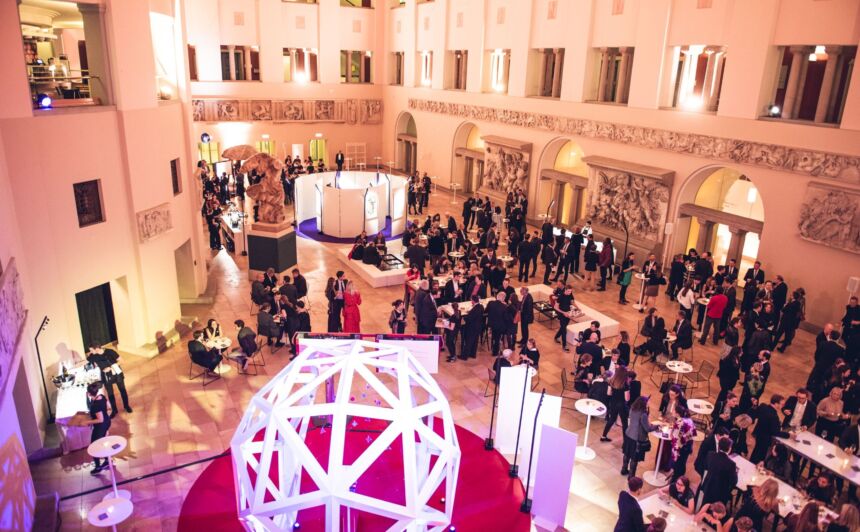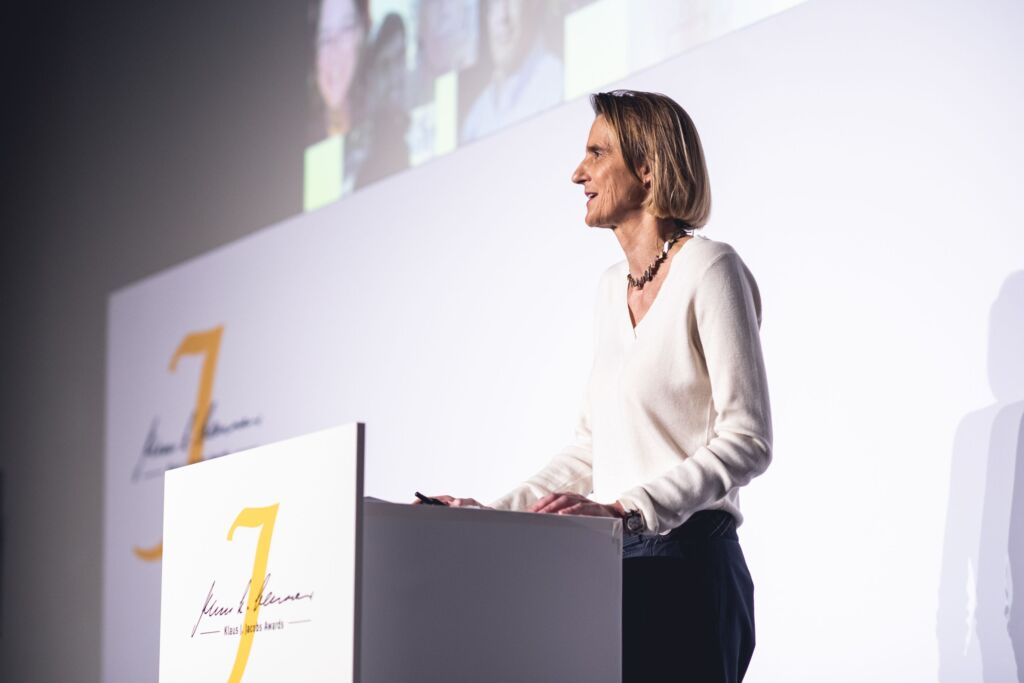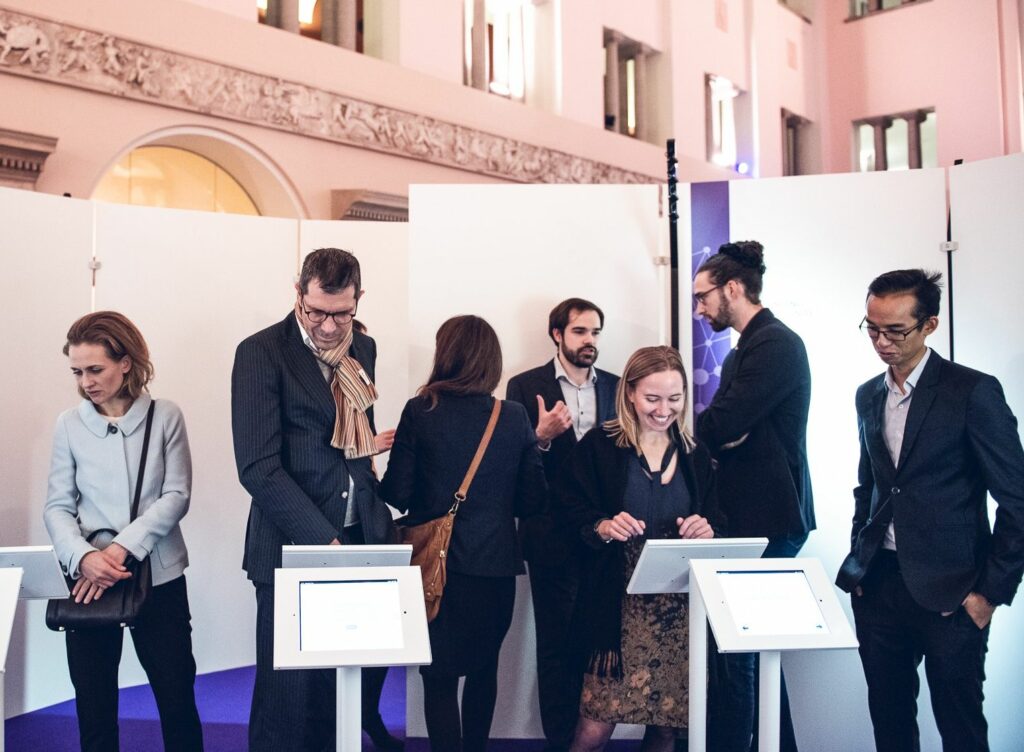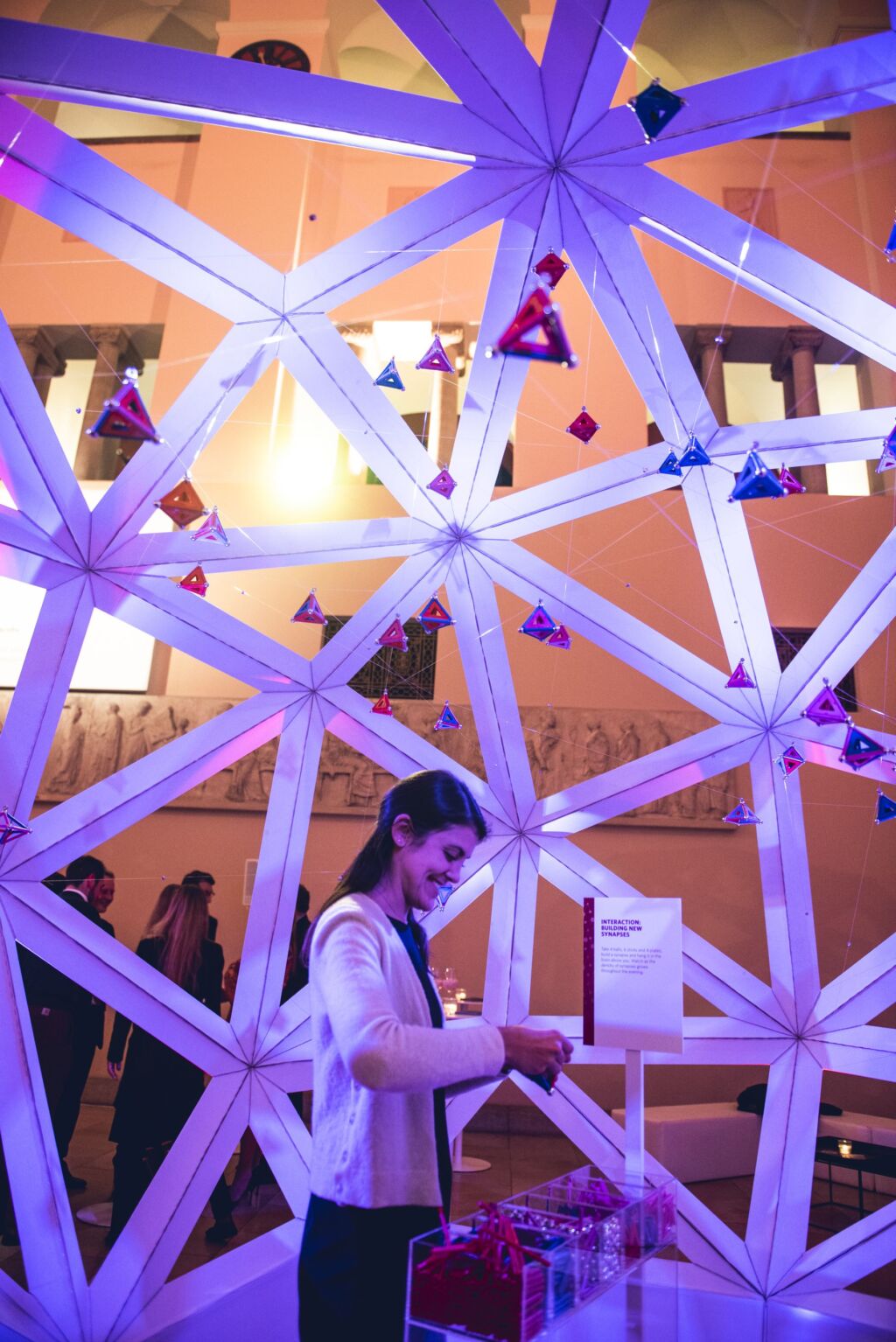Share Content
Article Link Copied
Prize ceremony with Science Dialogue

The 2019 Klaus J. Jacobs Research Prize was awarded to Prof. Daphne Bavelier during an interactive ceremony at the University of Zurich on November 22. Hundreds of guests literally stepped into Prof. Bavelier’s research topics.
An Oscar-like presentation, one short film, two inspiring TED talks and three Science Dialogue spaces made the 2019 Klaus J. Jacobs Research Prize ceremony a very special event for 350 international guests. Welcomed by the Jacobs Foundation’s two Co-CEOs Fabio Segura and Simon Sommer the evening started with a hearty laugh and reminded one or the other guest of the Oscar night. Lavinia Jacobs, President of the Board of Trustees, put Prof. Bavelier’s research into context by highlighting implications of promoting brain plasticity and learning by leveraging action video games. Prof. Bavelier’s TED talk was considered in Prof. Michael Brecht’s reflections on the wider scientific significance of Prof. Bavelier’s work.

Prof. Daphne Bavelier’s speech at the prize ceremony
Stepping into research
A huge metal construction of a brain, a research lab gaming experience and a playful children’s room – these three Science Dialogue spaces were built in the University of Zurich’s spacious “Lichthof” allowing the international guests to literally step into Prof. Bavelier’s research topics of brain plasticity, attentional control and the science of play and learning. The guests were able to exchange thoughts with Prof. Bavelier’s team, scientists and the 2019 Klaus J. Jacobs Research Prize recipient herself. “It’s fantastic that the guests are able to discover and experience our research”, said Prof. Daphne Bavelier. “I’m often asked about the experiments we do in our lab, here anyone can find it out by themselves.”
The most striking Science Dialogue space was the huge brain made of metal sticks. Guests were able to construct or deconstruct brain synapses to simulate processes in which our brain strengthens or loses memories.

Guests trying out attentional control tests in one of the Science Dialogue spaces
Science Dialogue space two focused on attentional control. “Here you can try the tests which we use in our research” said Arthur Nguyen, a PhD candidate from Prof. Bavelier’s lab at the University of Geneva showing a tablet. “The tests are like a game. You see a group of fish swimming. When the test starts, your task is to spot the fish in the middle of the moving group and quickly identify if it swims left or right. It may sound easy, yet the task gets harder when not all fish swim in the same direction!” With this game, the researchers test how well we can filter irrelevant information while staying on task. This skill develops substantially between 3 and 7 years of age.
Of mice and men (as well as fish and other animals)
Science Dialogue space three was a playful children’s room showcasing the science of play and learning. Mammals, birds and even turtles show playful behavior, a fact illustrated by lively videos shared by the play expert Gordon Burghardt. Finding this behavior in the young across species suggests that play supports important developmental milestones and helps individuals to cope with novel or unexpected situations. To test out the power of play, the visitors played Project Square, a game that teaches kids how to practice computational thinking without screens.
“It has been such an enriching experience”, said Elizabeth Anthony, Jacobs Social Entrepreneurship Fellow, “Not being a scientist myself, the three Science Dialogue spaces made Prof. Bavelier’s research topics very accessible and tangible. It was fun!”.
350 international guests of politics, science, business and culture attended the awards ceremony on November 22, 2019, at the University of Zurich.
Take a look at the full photo gallery here.

The Science Dialogue spaces allowed the guests to literally step into Prof. Bavelier’s research topics